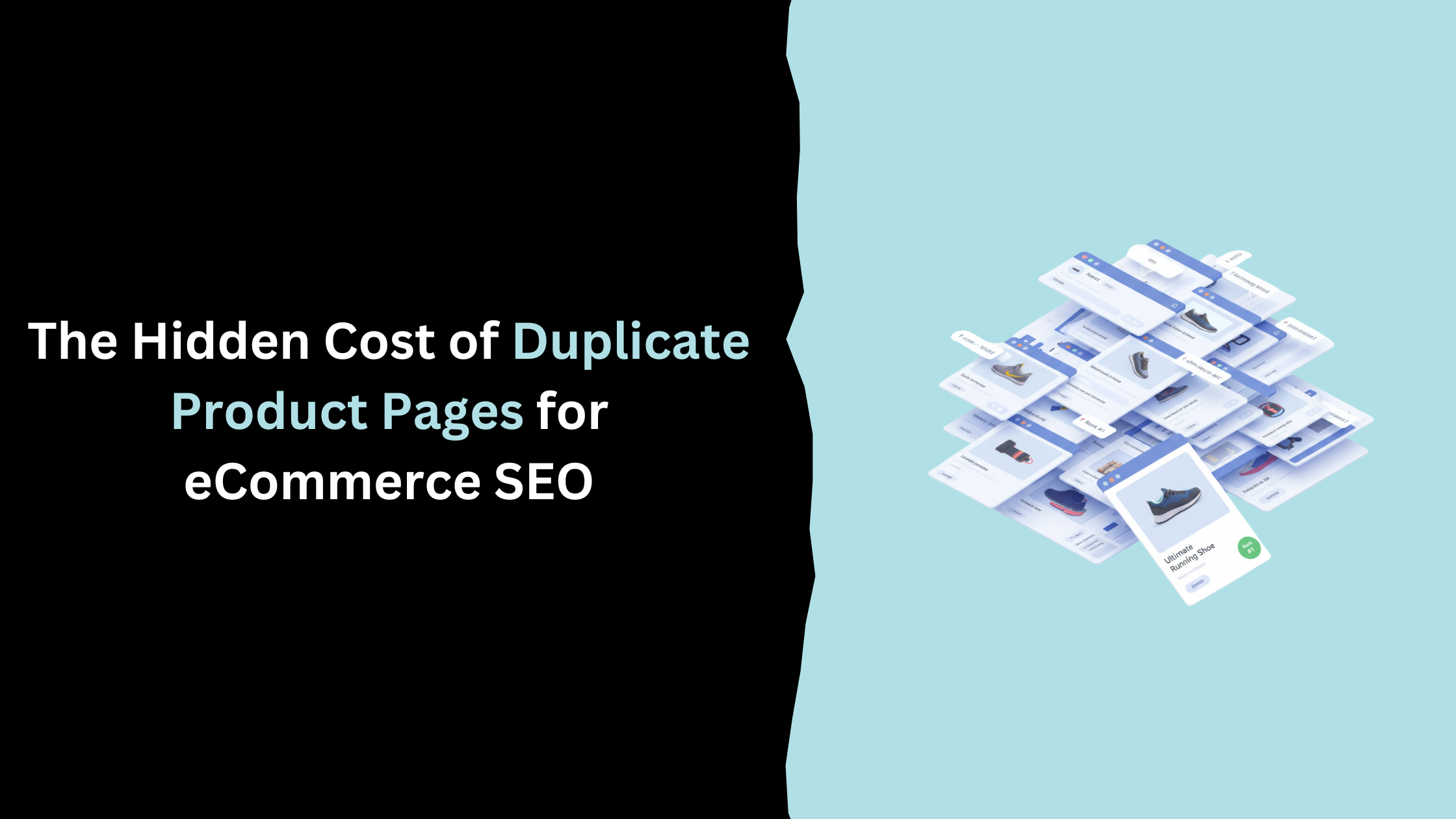Table of Contents
Search engines are no longer the only gateway to information. Large Language Models (LLMs) such as ChatGPT, Claude, Gemini, Perplexity, and CoPilot are emerging as new sources of information. They are imperfect today, sources can be opaque, links patchy, and responses inconsistent, but ignoring them risks invisibility tomorrow. We all have probably seen how LLM's can hallucinate - so why would brand or product recommendations be any different?
Technical SEO, Content, and Links have long formed the three pillars of organic search strategy. And, in our experience, it often ticks both the SEO and Generative Engine Optimisation (GEO) boxes in terms of an earned digital media presence. But, in our opinion, the time has come to add a fourth pillar to your box of earned media tricks. AI-generated answers are now a critical layer of earned digital visibility and based on the evidence we are seeing in analytics and Shopify panels, the phenomenon is nascent but is only set to grow.

This toolkit outlines the practical steps businesses can take to prepare for a world where AI search share of voice is as important as Google rank tracking. Spoiler alert: Much like Google’s algorithm, LLMs are a true ‘black box’, but we’ve followed the steps below and can see that they work.
GEO SEO Audit
Start by establishing a baseline. Audit brand visibility across AI engines:
- Test prompts relevant to your industry (e.g., “best [product/service] UK 2025”).
- Track where (and whether) your brand is cited.
- Compare outputs from ChatGPT, Claude, Perplexity, Gemini, and CoPilot.
This exercise highlights gaps. If competitors appear and you don’t, the issue is not demand; it is discoverability.
Content Reframing
LLMs prefer structured, factual, and concise information. Long narrative blogs or thought pieces rarely surface in generated answers. Indeed, the 'skyscraper' technique (take content and make it better) or topical relevance (target long-tail keywords and add to the funnel) is 'old' SEO. Try doinhg this instead:
- Recast core content into FAQs, summaries, and Q&A formats.
- Include definitions, lists, and short knowledge-style sections.
- Ensure each page answers real user questions directly. Reddit is great for this.
- LLMs love tables - as you will have probably seen, comparisons are a core tenet of ChatGPT output - information in tables is easy for humans (and LLMs) to understand.
Think less in terms of “keywords” and more in terms of “questions and answers.” GEO is all about moving beyond discoverability and into answers.
Entity Authority Building
AI models draw heavily on structured knowledge sources. To ensure your brand is machine-readable:
- Use schema markup consistently across your site.
- Create or update Wikidata entries.
- Secure citations from recognised authoritative sources.
- Connect brand and product data to wider knowledge graphs.
LLMs reward clarity. Ambiguity or inconsistency in brand data reduces the chance of being surfaced. And this is where the SEO basics come in - address, knowledge panels etc. need to be consistent.
AI Visibility Reporting
Traditional SEO reporting measures rankings and traffic. GEO requires a new metric: AI search share of voice.
- Track how often your brand appears in AI-generated answers.
- Monitor whether citations are linked, named, or absent.
- Build monthly reporting around coverage across engines.
This creates a feedback loop, ensuring strategy is data-driven rather than speculative.
How to Do It
Entity and Knowledge Graph Optimisation
Your brand data must be easy to ingest. Schema.org markup, Wikidata entries, and cross-references (i.e. links) to authoritative mentions all strengthen visibility.
Content Structuring for LLM Retrieval
Write for machines as much as humans. FAQs, bullet lists, and definition boxes increase the likelihood of being pulled into responses.
Source Authority Building
The principles of E-E-A-T remain, but with an AI lens. Trustworthiness in the eyes of a model means high-quality, reference-style content that looks like training data (see above RE: bullet lists and FAQs).
Monitoring and Influence
AI engines are dynamic. Perplexity cites sources directly, Gemini links selectively, and ChatGPT with browsing can now attribute. Treat this as a new landscape of influence and track it.
Prompt/Response Testing
Run test prompts as you would track keywords. Consider it “rank tracking for LLMs.” You'll find patterns emerge: industries where AI pulls from forums, sectors where Wikipedia dominates, and niches where trade publications are key.
Tools
The ecosystem of GEO tools is growing. Platforms such as Semrush AI SEO Toolkit are beginning to incorporate AI visibility metrics, though manual testing remains essential. Expect reporting sophistication to improve rapidly as adoption grows.
The Strategic Case
AI referrals remain a nascent phenomenon. Traffic volumes are small compared with Google today. But trajectory matters more than absolute numbers. Every indicator suggests that AI engines will become central discovery tools - we noted with interest OpenAI's deal with Shopify.
Treating GEO as the fourth core pillar of SEO is both pragmatic and forward-looking. Brands that adapt early will be cited, surfaced, and linked. Those who wait risk being edited out of the conversation. And if you want more information on our GEO process, you can check out our whitepaper here. It also won't 'harm' your SEO, especially given Google's belated but now aggressive lean into AI answers.
Checklist
- Audit AI visibility across ChatGPT, Claude, Gemini, Perplexity, CoPilot
- Reframe content into FAQs, summaries, and knowledge-style formats
- Implement structured data and entity optimisation
- Build authoritative connections and citations
- Establish AI visibility reporting as standard
- Run prompt/response tests monthly
Generative engines are not replacing search. They are becoming a parallel channel, and, in our experience, ticking the ‘belts and braces’ SEO approach will often tick most boxes. However, optimising for them is no longer optional. GEO is now part of the modern digital marketing toolkit, and it will only grow in significance. If you want more information on eCommerce and AI we have found this newsletter to be very useful.
Get in touch today
complete the form below for an informal chat about your business







.png)
